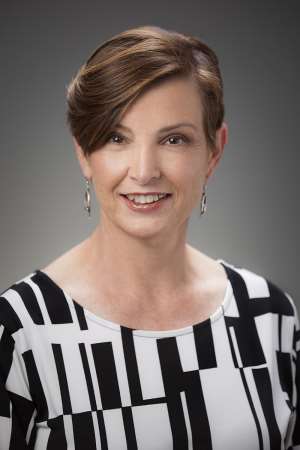
Power isn’t good or evil. Power is neutral. It’s what we do with it that makes it useful or abusive. “Power doesn't corrupt people, people corrupt power.”—William Gaddis
Sociologists, anthropologists, psychologists, economists, and theorists from various areas of study have developed theories about power. Powerful vs. powerless. Narcissism vs. altruism. Leaders vs. followers.
Power exists in the basic building block of society—families. Parents have power over children. Power exists in the marriage or partner relationship. Power exists in cultures.
Misusing or Using Power
There are predators of power in all professions—preying upon the young, the old, the vulnerable, or anyone they supervise. Presidents, producers, priests, police, politicians, professors, psychiatrists, pediatricians, principals, and any place of employment or any organization where power can be misused. Coaches, chefs, camp counselors, captains, chiefs of staff, child care workers, and clergy can misuse power. Pimps wield power of prostitutes. Male or female, those in power can choose to abuse it.
Boss bullies exploit people with a power that produces fear. Fear of being humiliated, harassed, or fired. Fear of being given a negative job reference or exiled in their area of expertise due to vicious rumors, lies, and intentional revenge.
A megalomaniac is a person with an obsessive desire for power. “The greater the power, the more dangerous the abuse,” declared Edmund Burke. Despot, Kim Jong-Un, fits this profile. And many liberals declare Donald Trump to be a megalomaniac of sorts.
Parents and caregivers are in positions of power. In 2016, 75 percent of children who died from child maltreatment suffered neglect either alone or in combination with another maltreatment type, and 44 percent of children who died suffered physical abuse either alone or in combination with other maltreatment. Medical neglect either alone or in combination with another maltreatment type was reported in 6 percent of fatalities, per a report by Child Welfare Information Gateway. www.childwelfare.gov/ . Abusing children is an abuse of power.
“Power is not limited to leaders or organizations; it doesn’t require outright acts of domination. It’s a basic force in every social interaction. Power defines the way we relate to each other. It dictates whether you get listened to. It determines whether your needs take priority or get any attention at all,” according to a 2014 online article in Psychology Today. www.psychologytoday.com/.Do you share the relationship power with your spouse or partner?
Relational aggression is the term used when adolescent girls usurp others to take, shift, and misuse social power. Social status wrapped in control is the prize.
So why does power bring out the best in some people and the worst in some people?
Abraham Lincoln surmised, “Nearly all men can stand adversity, but if you want to test a man’s character, give him power.” And John Maxwell noted, “A leader is great, not because of his or her power, but because of his or her ability to empower others.”
Reflect upon the nonviolent power and influence of Martin Luther King Jr., Mahatma Gandhi, and Jesus. The power of peace prevailed. Do unto others as you would have them do unto you.
Reflect upon the persistent power of Susan B. Anthony, Harriet Tubman, and Elizabeth Cady Stanton. Listen to the song “Run the World (Girls)” by Beyonce.
When humans seek equality, they are seeking an effective balance of power, not the absence of power.
Reflect upon the power in your family relationships and circle of human beings. Do you give or take power? Do you share or control the power? As a leader do you demand the power or empower others?
“The sole advantage of power is that you can do more good.” –Baltasar Gracian
Melissa Martin, Ph.D, is an author, columnist, educator, and therapist. She lives in US.




 Dumsor: Don't rush to demand timetable; the problem may be temporary — Atik Moha...
Dumsor: Don't rush to demand timetable; the problem may be temporary — Atik Moha...
 Space X Starlink’s satellite broadband approved in Ghana — NCA
Space X Starlink’s satellite broadband approved in Ghana — NCA
 2024 election will be decided on the grounds of the economy; choice of running m...
2024 election will be decided on the grounds of the economy; choice of running m...
 Dumsor: We're demanding less; just give us a timetable — Kwesi Pratt to ECG
Dumsor: We're demanding less; just give us a timetable — Kwesi Pratt to ECG
 Do I have to apologise for doing my security work, I won’t – Simon Osei-Mensah r...
Do I have to apologise for doing my security work, I won’t – Simon Osei-Mensah r...
 All my businesses have collapsed under Akufo-Addo — NDC Central regional chair
All my businesses have collapsed under Akufo-Addo — NDC Central regional chair
 Military, Prison Officers clash in Bawku, three injured
Military, Prison Officers clash in Bawku, three injured
 GRA-SML contract: MFWA files RTI request demanding KPMG report
GRA-SML contract: MFWA files RTI request demanding KPMG report
 Court threatens to call second accused to testify if NDC's Ofosu Ampofo fails to...
Court threatens to call second accused to testify if NDC's Ofosu Ampofo fails to...
 Family accuses hospital of medical negligence, extortion in death of 17-year-old...
Family accuses hospital of medical negligence, extortion in death of 17-year-old...
